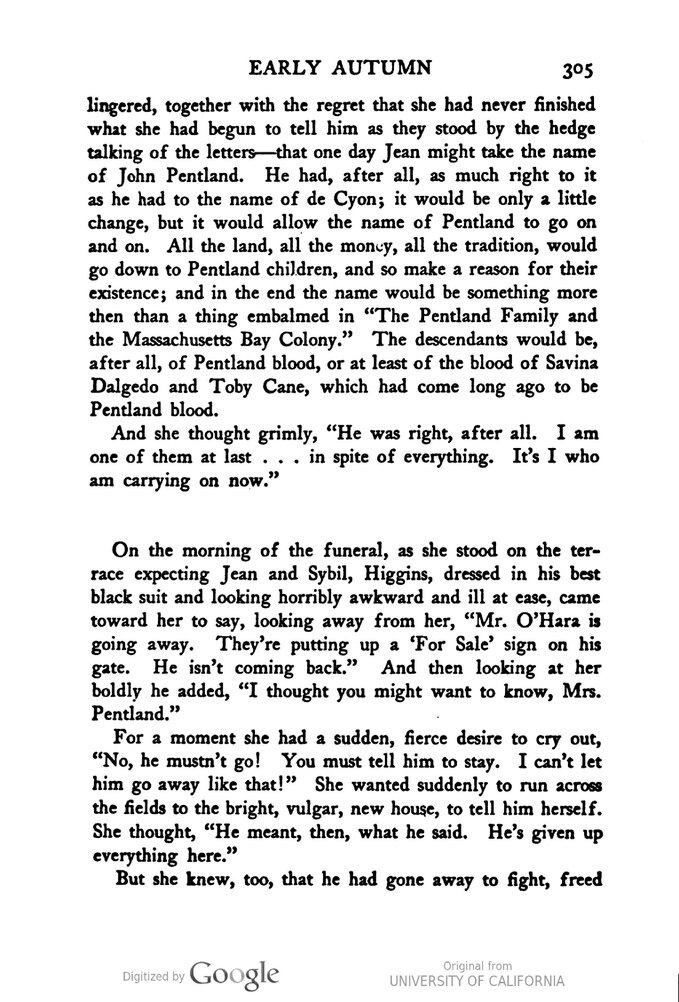lingered, together with the regret that she had never finished what she had begun to tell him as they stood by the hedge talking of the letters—that one day Jean might take the name of John Pentland. He had, after all, as much right to it as he had to the name of de Cyon; it would be only a little change, but it would allow the name of Pentland to go on and on. All the land, all the money, all the tradition, would go down to Pentland children, and so make a reason for their existence; and in the end the name would be something more then than a thing embalmed in "The Pentland Family and the Massachusetts Bay Colony." The descendants would be, after all, of Pentland blood, or at least of the blood of Savina Dalgedo and Toby Cane, which had come long ago to be Pentland blood.
And she thought grimly, "He was right, after all. I am one of them at last . . . in spite of everything. It's I who am carrying on now."
On the morning of the funeral, as she stood on the terrace expecting Jean and Sybil, Higgins, dressed in his best black suit and looking horribly awkward and ill at ease, came toward her to say, looking away from her, "Mr. O'Hara is going away. They're putting up a 'For Sale' sign on his gate. He isn't coming back." And then looking at her boldly he added, "I thought you might want to know, Mrs. Pentland."
For a moment she had a sudden, fierce desire to cry out, "No, he mustn't go! You must tell him to stay. I can't let him go away like that!" She wanted suddenly to run across the fields to the bright, vulgar, new house, to tell him herself. She thought, "He meant, then, what he said. He's given up everything here."
But she knew, too, that he had gone away to fight, freed
